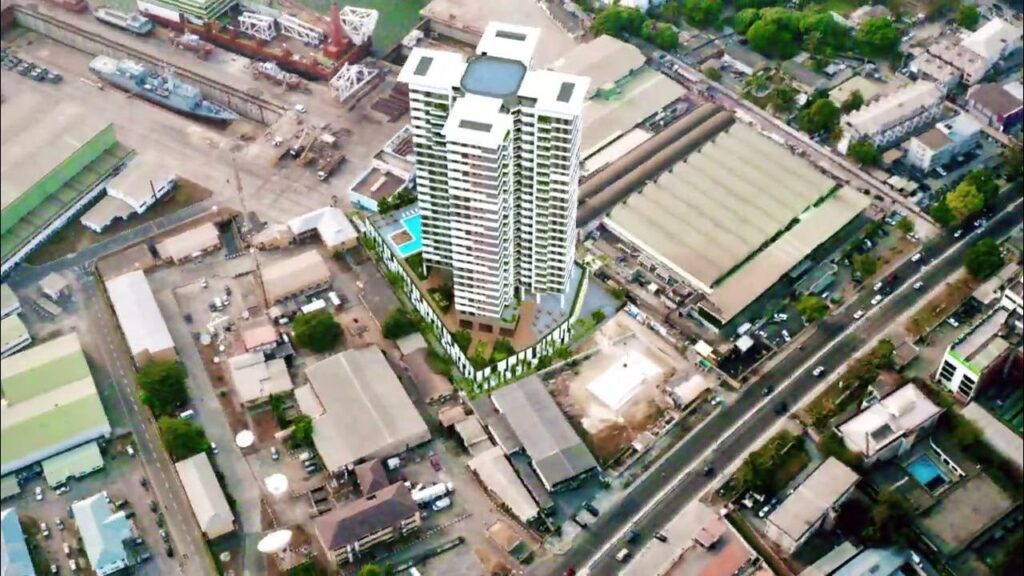
The National Building Code has been in the cooler, without minimal implementation and enforcement over the years. What are the issues and impediments?
THE national building code is a response to various challenges including disorder in our cities, building collapses and other failures, quackery in various phases of building developments with the attendant threat to public safety. The code indicates minimum conditions and requirements for the pre-design, design, construction and post-construction stages of buildings. It is good to underline the words ‘minimum conditions and requirements’. The implication is that a particular state can go beyond these minimum requirements but not below. The code addresses virtually all key issues regarding building project delivery especially inputs and processes. The code even proposes mechanisms for its enforcement. Simply put, the code is comprehensive in scope and encompassing in the application. We owe our wise men who worked on the code, a measure of gratitude.
There has been some level of implementation of the code in some parts of the country, however, not at the pace expected. A starting point is the baseline law and regulations for urban development. The National Assembly should show the way by passing an act for the enforcement of the irreducible minimum provisions of the code. We appreciate states that have brought or are bringing their urban development laws and regulations to the standards required by the building code. However, some states are yet to update their laws and regulations. This is a major challenge and impediment.
Other impediments include inexcusable ignorance and inertia. Sometimes, it amuses me. When there are building collapses, there is a cacophony of voices and many turned to emergency experts. One hears people blaming materials or workmanship. If they had understood the code, they would have known that the issues of materials and workmanship, including many others such as sustainability, have been addressed. For example, the code requires that a maintenance manual be handed over to the client on project completion. For existing buildings, a periodic building condition survey is required to be done. All these are to prevent unpleasant surprises of building failures.
Access to affordable housing is still beyond low-income earners, what are the challenges and the way forward?
The challenges are multifaceted and they have become a singsong over the years. The challenges include land accessibility, availability and affordability issues, cumbersome approval and titling processes, and skyrocketing costs of construction inputs. The government is supposed to be an enabler in different sectors. It is not a crime to be in the low-income bracket, but it is a failure of society not to house those in that category. There are so many models that can be used in this issue of housing; social housing, rent-to-own, etc. By whatever nomenclature, our citizens on the lower rung of the ladder deserve decent accommodation. The government should address challenges of interest and exchange rates, inflation and citizen’s purchasing power among others. Government should also place emphasis on the provision of infrastructure such that housing project promoters will not be battling with the cost of land and infrastructure. Removing these bottlenecks will see to the unleashing of the entrepreneurial potentials of our housing promoters. Deliberate efforts at investing in research and utilisation of alternative local materials should receive top-level support. Our research institutes should be encouraged. All hands should actually be on deck
Do you share the opinion that incidents of building collapse are a pointer to the housing crisis in the country?
Next to food and clothing, housing is top on the list of man’s needs. Nigeria’s housing crisis is real. The crisis also has unintended consequences. However, the housing crisis cannot and should never be an alibi for doing wrong things. As a matter of fact, doing the wrong things during the delivery of any housing project further compounds the national housing crisis. Lives and investments are threatened during building construction or thereafter. The project owner is the loser and the society becomes more endangered. In fact, discerning investors will not want to buy or occupy properties, which are either poorly designed or poorly constructed
Many practitioners have attributed rampant building collapse to corruption. How can it be eliminated towards having a sustainable building industry?
Corruption, a manifestation of mental and moral poverty, has been the undoing of many sectors in Nigeria. But we need to understand our context and environment. The actors in the building industry are not angels. The sickness in larger society affects the industry. I am not justifying corruption, neither am I making allusion that every Nigerian is corrupt. We have many upright and fine Nigerians, the finest breed of humanity you can find anywhere in the world. However, one evil person can do so much harm to our collective interest. Handling such people and their shenanigans should be the pre-occupation of the innocent majority.
Arbitrariness and unpredictability are the hallmarks of a disorganised society. The way to help and promote a sustainable building industry is to upscale a regime of predictability. That will start with promoting orderliness in our building project delivery. It will start with having laws in states that integrate the national building code, as well as having appropriate sanctions that would deter those who do not mean well for the industry and the society. Such laws will obviously prevent the incursion into the industry by fair-weather investors who want to cut corners and leave the industry worse than they met it. When there are observed or reported unethical practices, we can also activate the sanction clauses in the laws establishing the professions in the built environment.
COVID-19 has impacted virtually all sectors, with greater impact on the real estate sector. What can professionals and government do to mitigate the impact on the housing industry?
The solution will be found in project implementation that de-emphasises the crowding of persons. More emphasis should now be put on technology. The use of modular construction or industrialised building systems is one-way out. In simple terms, the production of precast elements and their subsequent installation on-site will reduce the use of manpower. The soft aspects, intra and inter-organisational communication can be addressed by information and communication technologies. Video conferencing platforms are becoming popular. The use of drones also comes handy. In some climes, robots are already being used in setting up buildings.
Professionals need to further develop themselves and adapt to emerging realities. The pandemic has increased poverty clusters in Nigeria. But our governments can also take advantage of the fact, that to rejuvenate the economy, a deliberate and sustained focus should be put on getting the building industry working. Addressing the availability and cost of inputs (such as materials) into construction is critical. For example, the government should wade into whatever that is the rationale for the exorbitant cost of cement, otherwise housing our critical masses will remain a mirage.
Technology is fast revolutionising the building process. How has this affected the academics in terms of curriculum for undergraduates?
Generally, curriculum development is a dynamic process responding to societal requirements, market demands and global realities. For science-based courses, which include courses in the engineering and environmental disciplines, the curriculum includes theory with an appropriate dose of practical work. Now, let me use this medium to correct some impression held about our educational system. Check the curriculum of a typical science-based course in a typical university in our nation and compare with that of other nations. You may not find fundamental differences. The area of difference oftentimes is in terms of laboratory, workshop or other types of infrastructure. It is our infrastructure that is obsolete, not the brains, not the lecturers, neither the students. The infrastructure includes both hard and digital types. Let us assume that you are teaching students about earth moving equipment such as bulldozers. Some students in some foreign universities will have models of such equipment in their laboratory or workshops where its performance can be simulated. Such models cost money. These are areas that we need to address in our universities.
Meanwhile, I am aware that there are processes for curriculum review for every course and programme. In my chosen field of building, we are incorporating courses that address digital construction, robotics and artificial intelligence. This is in addition to the technology and management content. We are conscious that the digital race is real and irreversible. The university is a universe and a market place of ideas should lead in that race. We should make our universities worthy places to attract international scholars and academics. If we get our acts right, our universities could be enormous sources of foreign exchange for the country. Massive investment is needed in our educational system.
What are the opportunities for young professionals in building technology and how can they avail themselves of these platforms?
I believe that in the process of adding value to society, a young building professional will hit gold. One of the ways to help our society is to teach our upcoming professionals to see the larger picture of quality service delivery, building a solid reputation and having a passion for clients’ satisfaction. The building graduate should identify his clients and societal needs and fill the gap. Opportunities abound in the entire building project delivery process. After necessary professional tutelage and certification, he can undertake construction planning which is a major area of service delivery. Construction planning takes building delivery from the reactive realm to the organised and deliberate environment.
Beyond construction planning, a young building professional can undertake the management of the actual site execution of the building project. Other areas, though not exhaustive, are building survey, research and development of alternative materials and intermediate technology options for building. Beyond being a professional, a young builder can launch out as an entrepreneur in many areas in the building value chain.
CORBON has developed national occupational standards for building trades. What necessitated this move? What measures have been put in place for its implementation?
Quality, international comparability and competitiveness, objective certification base, integration of the concept of life long learning, addressing the quantity and quality of our construction industry workforce as well as contributing to solving Nigeria’s employment crisis. These have been the drivers for the development of the first version of the National Occupational Standards (NOS) for building trades by Council of Registered Builders of Nigeria (CORBON). The NOS is a standardised syllabus for skills development at various levels, which also takes into consideration prior learning.
CORBON serves as the secretariat of the Sector Skills Council, consisting of critical stakeholders in the built environment, which provides information through a national database on skills gap at various levels for artisans and craftsmen in the construction sector. CORBON developed NOS for seven construction trades in line with Nigerian National Skills Qualifications Framework, which compares favourably with NOS in advanced countries; training providers in the country are already using the NOS. The Nigerian Institute of Building and other awarding bodies like NABTEB award certificates in line with the existing NOS.












